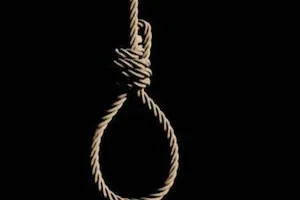EVERY 10th of September, the global community marks World Suicide Prevention Day (WSPD; a day set aside since 2003 to raise awareness and mobilise collective action against one of the gravest public health crises of our time. According to the World Health Organisation (WHO), about 727,000 people die by suicide annually, worldwide; making it the third leading cause of death among persons aged 15 to 29. Nigeria is not immune. Conservative estimates suggest that at least 16,000 Nigerians take their lives each year, with the true figure likely higher due to under- reporting.
This year’s observance falls under the theme “Changing the Narrative on Suicide”. Indeed, there is an urgent need for a change in approach, but not in the direction, some are proposing. The current Suicide Prevention Bill before the National Assembly, sponsored by Senator Asuquo Ekpenyong, seeks to decriminalise attempted suicide and replace existing penalties with a system that prioritises counselling, psychiatric support, and rehabilitation. While the intentions behind the bill are noble, we strongly caution against embracing its core thrust, decriminalization.
In Nigeria today, attempted suicide remains a criminal offence under Section 327 of the Criminal Code. The rationale behind this legal position is not to stigmatise the vulnerable. Rather, it serves as a strong deterrent against an act that undermines the sanctity of human life, a value clearly enshrined in Section 33 of the 1999 Constitution of the Federal Republic of Nigeria, which guarantees every citizen the right to life.
To decriminalise attempted suicide would, in effect, weaken one of the few institutional barriers that still exist against the growing normalisation of suicide in our society. Laws, after all, are not merely punitive; they are also instructive. They help to set moral standards and communicate societal values. By retaining suicide as a crime, Nigeria affirms that life is sacred and must never be wilfully terminated by self-destruction.
In a society already grappling with fragile mental health structures, poor social support systems, and widespread despair among young people, decriminalisation may unwittingly encourage more attempts rather than deter them. Suicide was once alien to Nigerian and African culture.
Strong family systems, community belonging, and shared values once served as buffers against such extreme actions. However, in today’s climate of economic hardship, moral disorientation, and social breakdown, more citizens, especially youths, are vulnerable. To now send a legal signal that suicide is no longer considered a crime may be tantamount to pulling down the last guardrail.
To be clear, insisting on the criminalisation of attempted suicide does not mean we should ignore the plight of the vulnerable. The government must adopt deterrence and compassionate support to tackle attempted suicide. The most effective path forward is to tackle the underlying issues that drive suicide. These include poverty, unemployment, domestic violence, drug abuse, stigma against rape victims, discrimination against people with disabilities, and the neglect of those living with HIV/AIDS. Government at all levels must ensure that even the poor and marginalised feel a sense of belonging in society. Social inclusion, robust emotional support systems, and affordable mental health services will go a long way in reducing the incidence of suicide.
The role of the media must also be underscored. Suicide reporting should be handled responsibly, avoiding sensationalism that glamorises the act. Instead, mass re-orientation campaigns should be deployed to highlight coping strategies, promote resilience, and reinforce the message that life, no matter its burdens, remains precious.
World Suicide Prevention Day is a sobering reminder of the fragility of life and the collective responsibility to protect it. While we commend lawmakers like Senator Ekpenyong and groups advocating for suicide prevention, we urge them to reconsider the push for decriminalization. What Nigeria needs is not the removal of deterrents but the strengthening of support systems alongside the law.


